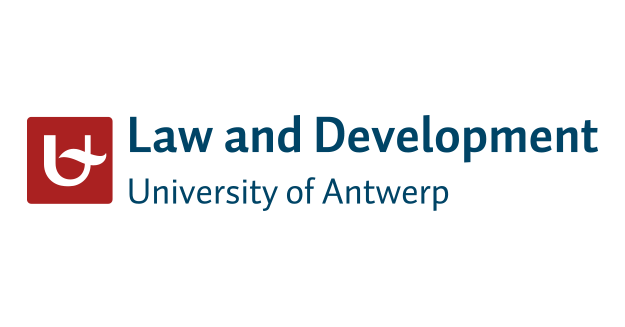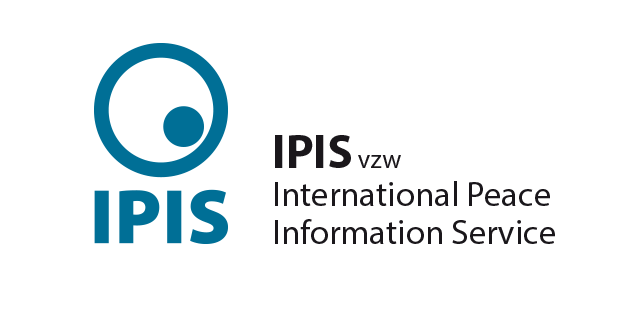3 Organisaties als plichtdragers inzake mensenrechten
Waar zijn de wetten en richtsnoeren voor private organisaties te vinden?

Deze pagina bevat twee soorten bronnen. Ten eerste de bronnen die op de vorige pagina’s ("wat?", "waarom?" en "hoe?”) expliciet worden vermeld, met de bijbehorende hyperlinks voor verdere raadpleging. Ze zijn gerangschikt naar de instelling die ze heeft vrijgegeven. Ten tweede is er een bibliografie met geraadpleegde bronnen die gebruikt werd om het instrument op te stellen. Deze bibliografie kan nuttig zijn voor de gebruiker voor nader onderzoek over het onderwerp.
- Richtsnoeren van de VN
-
UN OHCHR Accountability and Remedy Project Improving accountability and access to remedy for victims of business-related human rights abuse UN HRC A/HRC/32/19 and A/HRC/32/19/Add.1 (2016)
UN OHCHR Access to remedy for business-related human rights abuses: A scoping paper on State-based non-judicial mechanisms relevant for the respect by business enterprises for human rights: current issues, practices and challenges. Accountability and Remedy Project II (2017)
UN Committee on the Rights of the Child General Comment 16/2013 on State obligations regarding the impact of the business sector on children’s rights CRC/C/GC/16
UN Committee on Economic, Social and Cultural Rights General comment 24/2017 on State obligations under the International Covenant on Economic, Social and Cultural Rights in the context of business activities E/C.12/GC/24
- Europese Unie (EU)
-
- Bindende regelgeving
-
Richtlijn (EU) 2017/1132 aangaande bepaalde aspecten van het vennootschapsrecht
- Niet-bindende regelgeving
-
European Parliament (2016a) Improving global value chains key for EU trade.
European Parliament (2016b) Draft report on corporate liability for serious human rights abuses in third countries (2015/2315(INI)) Committee on Foreign Affairs Rapporteur: Ignazio Corrao.
EU Agency for Fundamental Rights -FRA- (2017) Improving access to remedy in the area of business and human rights at the EU level. Opinion of the EU Agency for Fundamental Rights, FRA Opinion – 1/2017 [B&HR].
- Jurisprudentie
-
CJEU C508/11 P ENI SpA v European Commission [8/5/2013] on TFEU (101)
CJEU C 106/16 Polbud – Wykonawstwo on the right to establishment of corporations
- België
-
Bindende regelgeving
Niet-bindende regelgeving
Het Nationaal Actieplan Ondernemingen en Mensenrechten/Plan d’Action National Entreprises et Droits de l’Homme (2017)
FIDO/IFDD: brochure "Toegang tot remediëring in België" (2017)
- Niet-statelijke organisaties
- Referenties
-
- Alen, A. and Verrijdt, W. (2016) “The Rule of Law in the Case Law of the Belgian Constitutional Court: History and Challenges”, Paper presented at 25th Anniversary of the Constitutional Court of Slovenia, Bled, June.
- Demeyere, S. (2015) ‘Liability of a Mother Company for its Subsidiary in French, Belgian, and English Law’, European Review of Private Law, (3); 385-413.
- De Schutter, O., Ramasastry, A., Taylor, M.B. and Thompson, R.C. (2012) Human Rights Due Diligence: the Role of the States, http://humanrightsinbusiness.eu/wp-content/uploads/2015/05/De-Schutter-et-al.-Human-Rights-Due-Diligence-The-Role-of-States.pdf.
- Enneking, L., Kristen, F., Pijl, K., Waterbolk, T., Emaus, J. Hiel, M., Schaap, A-J. and Giesen, I. (2015) Zorgplichten van Nederlandse Ondernemingen Inzake Internationaal Maatschappelijk Verantwoord Ondernemen: Een rechtsvergelijkend en empirisch onderzoek naar de stand van het Nederlandse recht in het licht van de UN Guiding Principles. WODC, Ministerie van Veiligheid & Justitie. https://www.wodc.nl/binaries/2531-volledige-rapport_tcm28-73868.pdf
- Gerner-Beuerle C., Paech P. and Schuster E-P. (2013) Study on Directors’ Duties and Liability. Department of Law, London School of Economics. LSE Enterprise London and European Commission. http://ec.europa.eu/internal_market/company/docs/board/2013-study-analysis_en.pdf
- Lacier Group and BCV CBS (2018)Witboek: Het nieuwe Wetboek van vennootschappen en verenigingen in 7 punten.
- Lejeune, Y. (2014) Droit constitutionnel belge: Fondements et institutions, Bruxelles: Groupe Larcier SA.
- Skinner, G., McCorquodale, R., De Schutter, O. and Lambe, A. (2013) “The Third Pillar: Access to Judicial Remedies for Human Rights Violations by Transnational Business“, The International Corporate Accountability Roundtable (ICAR), CORE and The European Coalition for Corporate Justice (ECCJ).
- The Economist Intelligence Unit (2015) “The Road from Principles to Practice Today’s Challenges for Business in Respecting Human Rights”.
- The Economist Intelligent Unit (2017) “No more excuses: Responsible supply chains in a globalised world” the growth crossings series (2017)
- Van Calster, G. (2014) “The Role of Private International Law in Corporate Social Responsibility”, Erasmus Law Review, (3): 125-33.
- Van Dam, C. (2015b) “Human Rights Obligations of Transnational Corporations in Domestic Tort Law state”, in: Letnar Cernic J. and van Ho, T. (eds.), Human Rights and Business - Direct Corporate Accountability for Human Rights,Nijmegen: Wolf Legal Publishers, pp. 475-497.
- Van Dam, C. and Gregor, F. (2016) Corporate responsibility to respect human rights vis-à-vis legal duty of care.
- Van de Looverbosch, M. (2017) “Real Seat Theory v Incorporation Theory – The Belgian Case for Reform”, International Company and Commercial Law Review, (Jan.).
- van Huijstee M., Ricco V. and Ceresna-Chaturvedi L. (2012) How to use the UN Guiding Principles on Business and Human Rights in company research and advocacy. A guide for civil society organisations, SOMO (The Netherlands), CEDHA (Argentina) and Cividep (India).
- Weber, R. H. and Baisch, R. (2016) “Human Rights Violations of Subsidiaries Liability of Parent Companies for Human Rights Violations of Subsidiaries”,_European Business Law Review, 27(5): 669.
- Wulf, H. (2017) Company Law. In Kruithof, M., & De Bondt, W. (ed.). Introduction to Belgian Law. Kluwer Law International.
- Zerk, J. (2014) Corporate liability for gross human rights abuses: Towards a fairer and more effective system of domestic law remedies A report prepared for the Office of the UN High Commissioner for Human Rights (Chapter 4 Barriers: Some analysis of Belgium).




